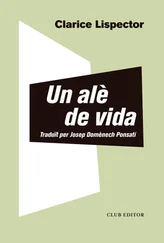Paradoxically, all this gradually gave him that deep happiness which one must shout and communicate to others. This presented no problem because he liked communicating with others. This was not something he had chosen or cultivated: it was truly a gift. He enjoyed the deep happiness of others, and his innate gift helped him to discover the happiness of others. The same gift also allowed him to discover the solitude of others. It also helped him to treat life as a game by transforming it into colours and forms. An inborn instinct taught him that gestures, without causing offence or scandal, could convey the liking he felt for others. Without so much as feeling that he was using this gift, he revealed himself; he gave to others without realizing that he was giving; he loved without knowing that this was what was known as love. The gift was like the shirt this contented man did not possess. Because he felt so poor and had nothing to give, he gave himself. He gave himself in silence, and gave what he had made of himself, just as one summons others to come and take a look.
Little by little he came to be surrounded by misunderstanding: the others looked at him as if he were a statue, as if he were a photograph. They failed to understand that in order to forge his personality, he had undergone a painful process of stripping away rather than embellishment. Because of a misunderstanding, he found himself being feted. Because of a misunderstanding, he found himself being loved. But to feel oneself being loved was like recognizing oneself in the love received. And this man was loved as if he were someone else: one of the chosen. He shed the tears of the unmoving statue which weeps at night in the public square. The darkness in the square had never been so intense. Until daylight returned and that person was reborn. The earth’s rhythm was so generous that dawn broke. But when night returned, darkness fell once more. The square was once more engulfed in solitude. Those who had chosen, slept in fear. Afraid because they thought they would have to dwell in the solitude of the square. They did not know that this solitary square was his place of work. That he, too, felt lonely. He had organized his entire life in order to function outside the square. It is true that once he felt prepared, anointed with oils and perfumes, he realized there was not enough time left to exist like the others: he was different, however reluctantly. Something had gone wrong for, when he saw himself in the photograph the others had taken, he was alarmed and embarrassed by what he saw there. They had turned him, no more, no less, into one of the chosen. They had robbed him of his freedom. How could he rectify their mistake? In order to make their task easy and save time, they had photographed him in only one pose. And now they no longer referred to him but simply to the photograph. All they had to do was open a drawer and take out his photograph. Besides, anyone could acquire a copy. It did not cost much.
When they told him: I love you, he felt uncomfortable and could not even express his gratitude. And me? What about me? Why only my photograph? But he did not protest because he knew that the others were not acting out of malice. Sometimes in his loneliness he tried in vain to imitate the photograph. This only served to make the false image in the photograph seem all the more authentic. At times he became quite confused: he found himself unable to copy the photograph and had even forgotten what he looked like in reality. So, like the laughing clown, he often wept beneath his painted mask of court jester.
Then he secretly tried to destroy the photograph. He did or said such contradictory things to the photograph that the corners turned up with rage as it lay there in the drawer. He hoped to become more real than his image. But what happened? It turned out that all he did was to touch up the image in the photograph.
And so it went on until all his hopes were dashed and he died of loneliness. But he finally escaped from that statue in the square after considerable effort. He had a number of falls before learning to walk by himself. And, as the saying goes, earth had never seemed more fair. He recognized that this was the land for which he had prepared himself. So he had not been mistaken, after all, and the map locating the treasure had given the right directions. As he walked, he touched everything in sight, and smiled. Even though alone, he was smiling. He had learned to smile on his own.
Every time I think of London I can see those bridges again. I felt quite at home in London, but to think that I actually lived there for a time now makes me realize my good fortune. For me, London was mysterious and pulsating with life, yet grey. And everything grey has a strange effect on me, as if all the muted shades were being merged into one.
I saw the ugliness of the English at close quarters, which is one of the most appealing things about England. It is such a peculiar ugliness, and yet so beautiful. I am being serious. The winters were chilly and the harsh wind brought a rosy colour to cheeks and hands which made people look all too real. Women in London go shopping with baskets; the men who work in the City wear bowler-hats. And the Thames looks foul with its muddy waters. London was once stricken by plague. And a great fire razed the entire city to the ground. I could sense the presence of both plague and fire when I lived there.
Londoners drink the most horrid coffee out of large cups which give off steam. The whole island gives off steam, its blackened bridges emerging from perpetual mist. Fog emanates from the city’s cobblestones and enshrouds the bridges. London’s bridges make a deep impression. Some are solid and menacing. Others almost skeletal.
The English themselves are not all that intelligent. Yet England has shown herself to be one of the most intelligent nations in the world. We went around by car. There are mazes of tiny villages between one large town and the next. A fine drizzle spatters on the car windows. People on the streets are so badly dressed that they end up giving the impression of being quite stylish. And they do know how to wrap up in bad weather. I can picture a child I once saw, smothered in a heavy, dark overcoat, wearing thick woollen socks and a hood which tied under the chin. The child had a pinched little face with bright, knowing eyes and rosy cheeks. And that pure intonation peculiar to English voices, at once superior and questioning.
Only now do I appreciate just how much I loved those London winds which made my eyes water and caused my skin to look chapped.
And then there were those outings into the countryside and the English landscape which is so unlike any other. I can still see those incredibly tall trees.
The English love exploring their own island and there is a sense of restless toing and froing in all directions.
A visit to the theatre in London is a memorable experience. Watching English actors sends a shiver down the spine. The English actor is the most serious man in England. Within the space of a few hours, he makes each member of the audience aware of those essential things one tends to lose sight of in everyday life. You step out of the theatre into rain and darkness, on to wet pavements and those quaint English streets which make one long for some perilous adventure. We go to dinner. The traditional fare served in English restaurants is quite dreadful and makes one irritable. Fortunately there are plenty of ethnic restaurants in London where the food is much more appetising.
Remnants of medieval England can be seen in the city’s towers. The self-assurance of certain Englishmen can be amusing. Accustomed to war, they stride rather than walk along the pavements. And were the world not such a sad place, this struggle for survival might have a certain charm.
Читать дальше












